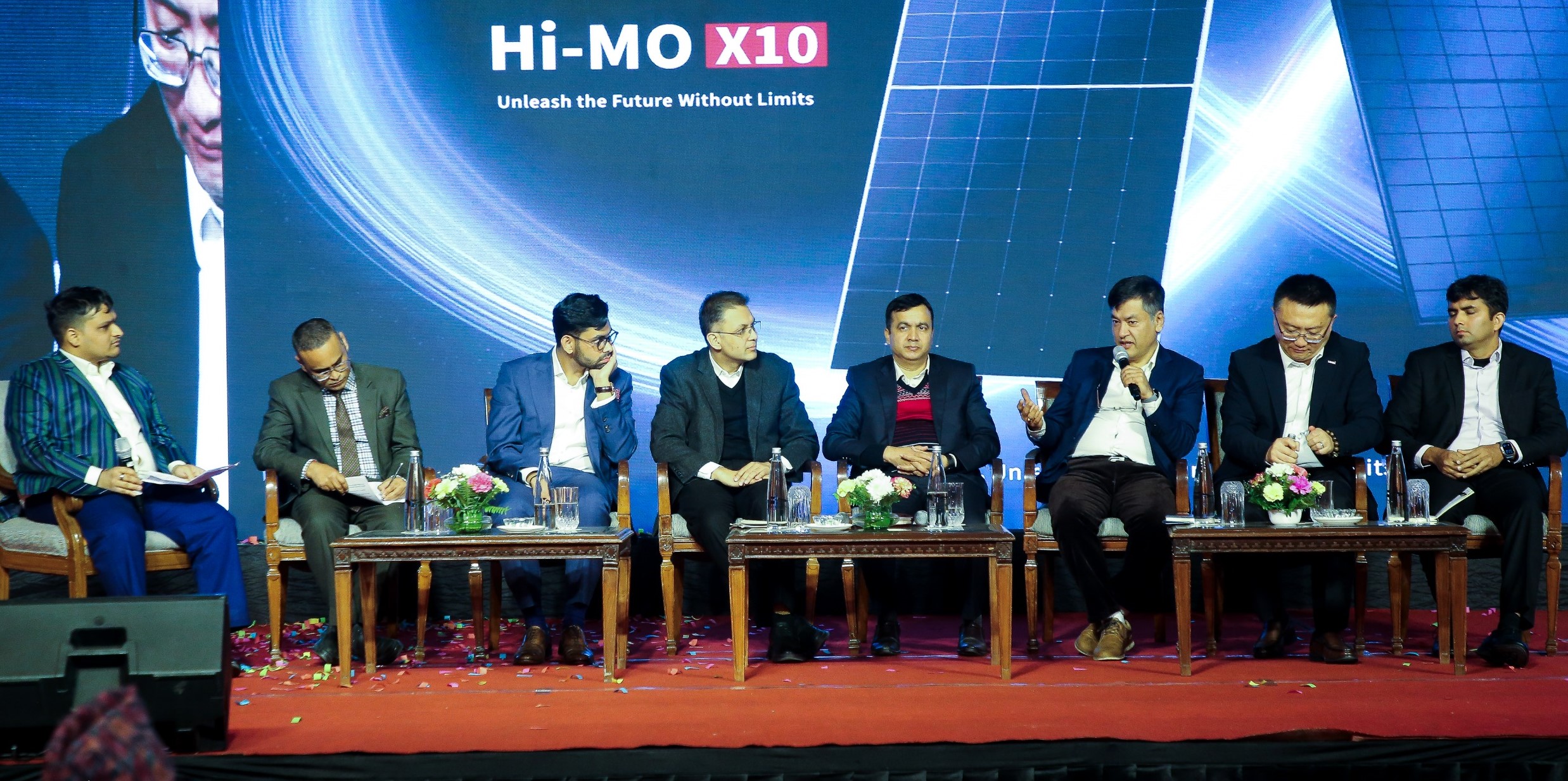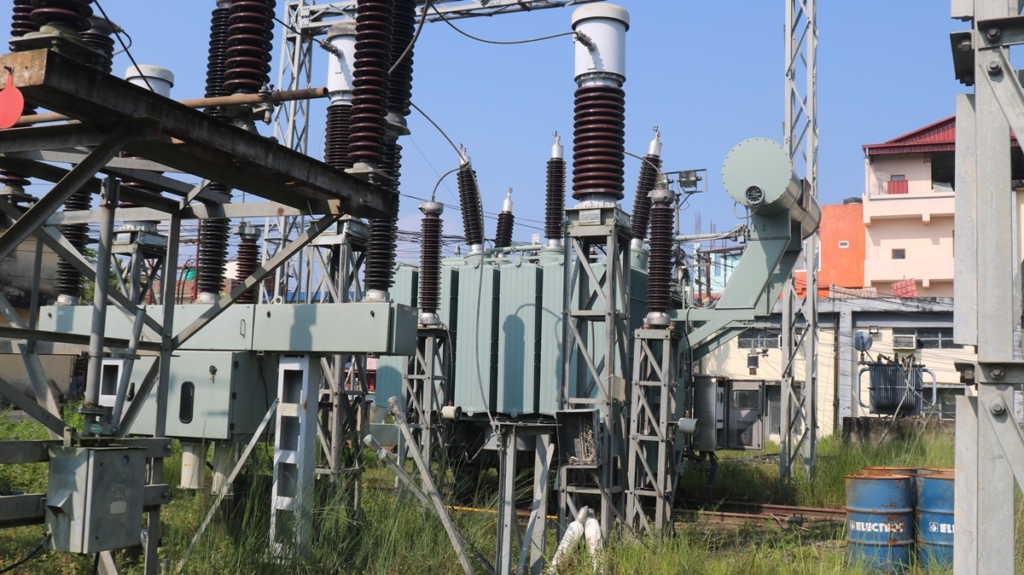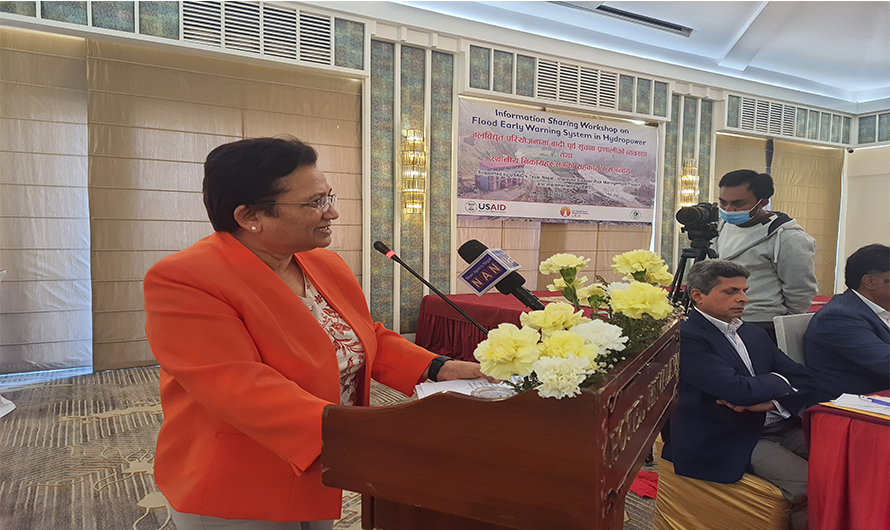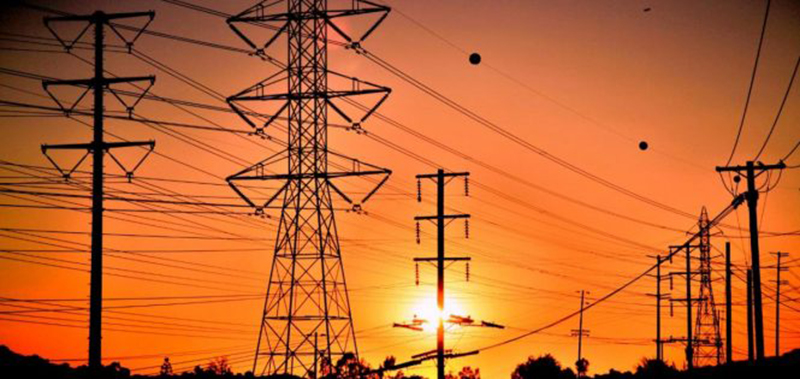Energy Update
Gaurishankar Conservation Area tells hydropower projects to stop work
.jpg)
Dolakha; Gaurishankar Conservation Area in the country's eastern Himalayan region has directed two hydropower projects to stop construction work immediately following complaints that they were destroying the environment in a sensitive zone.
The two projects are the 22 megawatt Rolwaling Khola Hydroelectric Project and 160 megawatt Lapchi Khola Hydropower Project.

Promoted by the 456 megawatt Upper Tamakoshi Hydropower, the Rolwaling Khola Hydroelectric Project began construction a year ago.
According to Rolwaling officials, the conservation area wrote to them to stop work immediately, and also stop the entry of project officials in the conservation area without permission.

Officials say the issue may not be settled soon if the government does not take it seriously since a project being constructed by one government body is being stopped by another government body,
The conservation area wrote to the Upper Tamakoshi Hydropower Project on January 31.
A project official said the letter was signed by Madhu Chhetri, chief of the conservation area. The letter said the decision to stop work had been taken on the basis of complaints filed by locals and an observation report of the construction site.
The strongly worded letter concluded by saying that the conservation area would be forced to take legal action if work was not stopped.
The conservation area has also asked for details of all project employees including foreign staff.
Bigyan Prasad Shrestha, chief executive officer of Upper Tamakoshi Hydropower Limited, confirmed that they had received the letter. "We have received a letter to stop all work,” he said, adding that it would have been better if the two government bodies had coordinated with each other. “We have stopped work accordingly.”
The project was in the final stages of the environmental impact assessment.
“We are not against the environment. But it’s not rational to issue orders to stop development work,” Shrestha said. He claimed that the project was serious about abiding by all environment related issues in the area.
Some officials said that it would have been better if discussions had been held before initiating project work.
Upper Tamakoshi Hydropower, the country’s largest project as of now, has developed a cascade project from the water it releases from the 456 megawatt project.
Gaurishankar Conservation Area has also asked the Lapchi Khola Hydropower Project being constructed by the private sector in Bigu Rural Municipality-1, Lapchi, near the Chinese border to stop work.
The project has built an 8-km access road by felling trees in the conservation area without obtaining approval. The project used earthmovers to build the road, according to officials of the conservation area.
"A team from the conservation area had inspected the project site and found a large amount of deforestation," said Madhu Chhetri, chief of the conservation area.
“We asked for clarification but the project replied that they had not built the road and that it was the rural municipality that had built it,” said Chhetri. He said that the rural municipality has also been asked for clarification.
The conservation area is working on the conservation of Himalayan musk deer.
The area is also prone to landslides. Chhetri said that the conservation area asked to stop work as the project was found constructing roads in a sensitive area without any information.
Chhetri said that they had requested the project to show the agreement of the environmental impact assessment.
“We asked for the document from the project on the basis of the complaint,” he said.
"The project has not submitted any document. We are trying to manage development work in the conservation area. The area is very fragile.”
Project officials have accused the conservation area of being more interested in raising royalty by selling resources like stone, gravel and sand.
Conversation
- Info. Dept. Reg. No. : 254/073/74
- Telephone : +977-1-5321303
- Email : [email protected]














